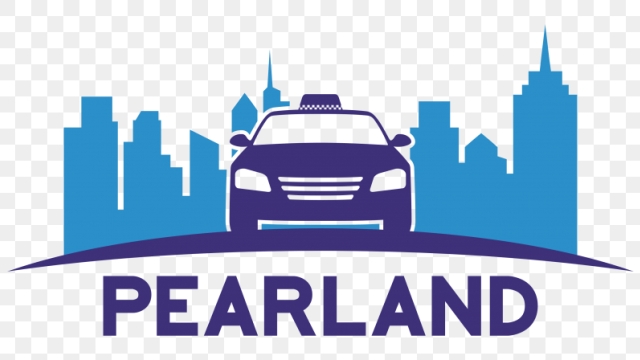Are you a student or teenager who feels overwhelmed about choosing a career path? Are you unsure about the next steps to take on your career journey? Don’t worry, you’re not alone. Career counselling can be incredibly helpful in providing guidance and support to navigate through the various options and make informed decisions.
Career counselling is a process that aims to assist students and teenagers in exploring their interests, strengths, and values, while also considering their long-term goals and aspirations. By working with a career counsellor, you can gain valuable insights into different career paths, understand the educational and skill requirements for various professions, and receive guidance on how to effectively plan and prepare for your future.
Whether you’re just starting to think about your career or are already in the midst of making important decisions, career counselling can provide the support and resources you need. Through personalized assessments, one-on-one consultations, and access to a variety of tools and resources, you’ll have the opportunity to develop a deeper understanding of your unique strengths and interests, along with the necessary skills and knowledge to pursue a fulfilling career.
So, if you’re seeking career advice as a teenager, don’t hesitate to explore the benefits of career counselling. It’s never too early to start planning for your future, and with the guidance of a career counsellor, you’ll be equipped to make informed decisions and confidently navigate your career journey.
1. Understanding your skills and interests
When embarking on your career journey, it’s crucial to have a clear understanding of your skills and interests. Identifying what you excel at and what truly excites you will pave the way for a more fulfilling and rewarding career. Here are three key steps to help you gain insight into your abilities and passions:
- Career advice for teens
-
Self-reflection: Take the time to reflect on your experiences and assess what you enjoy doing. Consider the activities or tasks that come naturally to you and that you find enjoyable. Think about the subjects in school or hobbies outside of academics that captivate your interest. Reflecting on these aspects will provide valuable clues to your skills and interests.
-
Seek feedback: It’s essential to gather feedback from those who know you well, such as teachers, mentors, or family members. They can offer valuable insights into your strengths and areas of improvement. Discuss with them the things you excel at and the activities you find engaging. Their observations and feedback will contribute to your self-awareness and help you understand your skills and interests from an external perspective.
-
Explore different fields: Don’t limit yourself to just one area of interest. Take the opportunity to explore various fields and industries to gather experience and knowledge about different career paths. This exploration could involve volunteering, internships, part-time jobs, or even conducting informational interviews with professionals working in fields that align with your interests. This exposure will provide a broader understanding of your skills and interests and help you make more informed decisions about your future career.
Remember, understanding your skills and interests is a continuous journey. It’s important to regularly reassess and refine your understanding as you grow and gain new experiences. This self-awareness will serve as a strong foundation for navigating your career path effectively and finding roles that align with your passions and capabilities.
2. Exploring different career paths
When it comes to choosing a career path, it’s important to explore your options before making a decision. Career counselling can help you in this process, particularly if you’re a student or a teenager seeking guidance. Here are some steps to help you navigate this aspect of your career journey:
-
Self-reflection: Take some time to reflect on your interests, values, and skills. What activities or subjects do you enjoy? What matters most to you in a future career? Understanding yourself better will give you a starting point for exploring different paths.
-
Research: Once you have an idea of your interests, research various career paths that align with them. Look for information on job descriptions, required qualifications, and potential growth opportunities. Websites, career guidebooks, and talking to professionals in different fields can provide valuable insights.
-
Seek guidance: Reach out to a career counsellor who specializes in student career counselling or career advice for teenagers. They can provide personalized guidance, recommend resources, and assist you in making informed decisions. Their expertise can help you explore various options and weigh the pros and cons of each.
Remember, exploring different career paths is an ongoing process. It’s normal to feel unsure or change your mind along the way. Career counselling can support you throughout this journey, helping you make informed decisions and choose a path that aligns with your aspirations and strengths.
3. Setting goals and creating a career plan
Setting clear goals and creating a well-defined career plan is essential for anyone seeking career counseling. By defining your objectives and outlining a roadmap to achieve them, you can navigate your career journey with confidence and purpose. Here are three key steps to help you in this process:
-
Self-reflection and assessment: Start by taking the time to reflect on your skills, interests, values, and strengths. Consider what motivates you and what you envision for your future career. Assess your current knowledge and abilities, and identify areas where you want to grow and develop. This self-reflection will provide valuable insights to guide your career planning.
-
Research and exploration: Once you have a clearer understanding of your personal attributes and aspirations, it’s important to conduct thorough research and explore various career options. Look into different industries, job roles, and professions that align with your interests and goals. Speak to professionals, attend career fairs, and leverage online resources to gather information about these potential paths. This exploration phase will help you make informed decisions about your career plan.

Goal setting and action planning: With a wealth of information at your disposal, it’s time to set specific, measurable, achievable, relevant, and time-bound (SMART) goals. Break down your long-term objectives into smaller, manageable milestones. Create an action plan with deadlines, strategies, and resources needed to accomplish each goal. Regularly reassess and adjust your plan as you gain new experiences and insights.
By following these steps and creating a solid career plan, you will be better equipped to navigate your career journey. Remember, the path may evolve and change over time, so remain adaptable and open to new opportunities. With determination and a well-defined plan, you can confidently pursue your dreams and achieve professional success.




